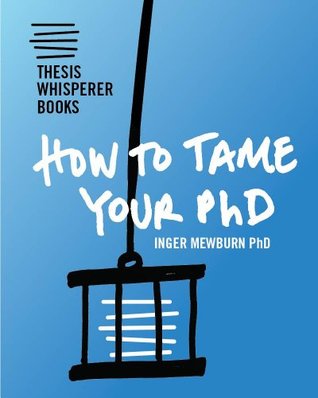More on this book
Kindle Notes & Highlights
Promise yourself a reward for completion - chocolate, TV, a walk in the park - whatever it takes to keep Mr or Ms Bottom in chair
Finished theses, chapters and journal articles are the only tangible proof of your invisible labours in the footnote mines.
how difficult it is to learn how to be edited
the process of dealing with death and dying: Denial, Anger, Bargaining, Depression and finally, Acceptance.
Many PhD students may have trouble imagining they can reach, let alone exceed, the magic 90,000 word count (which is the maximum our university allows). Yet, by the end, almost everyone has war stories about having to lose large portions of text:
Use that strike through tool. You know - the one that does this neat thing.
2) Move the questionable text to the footnotes.
Start a 'maybe later' folder.
4) Triage your text.
5) Preform bypass surgery:
'On writing well: the classic guide to writing non fiction' by William Zinsse.
1) Use brackets to diagnose 'fuzz' in your text:
Two examples of fuzz are 'also' and 'very'.
2) Pay attention to your adverbs and such:
3) Get rid of qualifiers:
4) Strive for nuance
5) Get comfortable with pruning the excess:
The ideas and findings in a thesis are important; style is secondary. A simple and precise style is like painting your walls white - a backdrop against which your ideas can pop.
supervisors (panel members if you are studying in the USA)
The supervisor has helped you to develop what they already have - an internal critic. This internal critic you have formed while doing a PhD will be your friend for life - it is the essence of scholarly independence and will enable you to do the job of an academic.
1) TMI: Too much information (TMI)
2) All theory, no action:
3) Why are we here?
4) Undigested text:
5) Question time = fail:
1. “The Craft of Research”, Wayne Booth, Greg Colomb and Joseph Williams.
2. How to Write a better thesis, by Paul Gruba and David Evans
3. Helping Doctoral Students to Write by Barbara Kamler and Pat Thomson
It is written for social science students, so scientists might be put off by the style
4. The unwritten rules of PhD research by Marian Petre and Gordon Rugg
5. Writing for Social Scientists, Howard Becker


